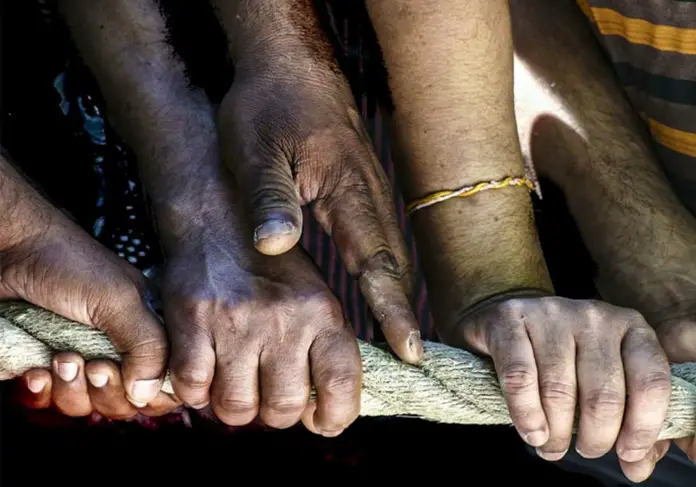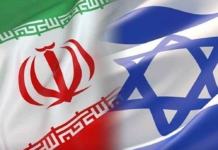Tomorrow, December 20, 2022, marks International Human Solidarity Day. Solidarity is identified in the Millennium Declaration as one of the fundamental values of international relations in the 21st Century, wherein those, who either suffer or benefit least deserve help from those who benefit most. Consequently, in the context of globalization and the challenge of growing inequality, strengthening of international solidarity is indispensable. Therefore, the UN General Assembly, convinced that the promotion of the culture of solidarity and the spirit of sharing is important for combating poverty, proclaimed 20 of December as International Human Solidarity Day. Through initiatives such as the establishment of the World Solidarity Fund to eradicate poverty and the proclamation of International Human Solidarity Day, the concept of solidarity was promoted as crucial in the fight against poverty and in the involvement of all relevant stakeholders— https://www.un.org/en/observances/human-solidarity-day
By the end of 2020, many Pakistani microfinance institutions (MFIs) had temporarily suspended their lending operations, and the demand for credit declined slightly as people suffered income losses…The government’s Kamyab Pakistan Programme, rolled out in September 2021 to provide subsidized or interest-free loans to small and medium enterprises (SMEs) and agricultural workers, could also have mixed impacts on the stability and future growth potential of the microfinance sector by distorting the price of credit and increasing the moral hazard of strategic future default—World Development Report 2022: FINANCE FOR AN EQUITABLE RECOVERY
The list of these challenges is quite long and formidable: denial of right to work, non-recognition of women’s work, non-payment for work done by women, denial of a fair wage, gaps in the legislation needed to protect women’s rights, non-implementation of laws that have already been enacted, non-recognition of informal-sector workers, and, above all, prevalence of an environment that perpetuates and reinforces gender inequality by the day— I A Rehman in For women empowerment
Those of us who work in the tax justice space speak a lot about fairer taxation— ensuring that the burden for paying tax falls proportionately on those who are most able to pay. This is essential in developing societies and a key enabling factor for these countries to reach their potential. Used well, tax policy is the most sustainable financing instrument to attain UN SDG 10 of reducing inequality within and among countries. Tax policy can reduce the inequalities that diminish the capacity of women to lead the lives they want and be independent—How to tax for gender equality
The World Bank five years back in its report, ‘World Development Indicators (WDI) 2017’, showed that “one-third of Pakistan’s population continues to live in poverty, corresponding to some 50 million poor individuals. Children and women (out-of-school/working), disabled, and potentially the elderly, are the most vulnerable groups of poor”. Out of these, not less than 15% live below $1.90 per day, which was categorised as extreme poverty.
Millions suffering from hunger, malnutrition and diseases are even in 2022 deprived of basic facilities of life. What makes the situation more painful is the fact that overwhelming majority of members of national and provincial assemblies and senators pay laughable amounts as income tax when compared with their lavish style of living (Tax Directories of Parliamentarians for tax year 2013 to 2019) testify to it—thereafter no directories are issued for tax years 2020 and 2021 by the Federal Board of Revenue (FBR). It is hoped that Finance Minister, Muhammad Ishaq Dar, who pioneered publishing of tax directories of legislators, will take note of what is elaborated in an English daily, PTI, FBR & tax directories—I, and PTI, FBR & tax directories—II, April 23-24, 2021).
We are know that “the Sustainable Development Agenda is centred on people and planet, underpinned by human rights and supported by a global partnership determined to lift people out of poverty, hunger and disease. It will, thus, be built on a foundation of global cooperation and solidarity”. In Pakistan, unfortunately, taxpayers’ money is not spent for the empowerment of women and eliminating rising inequalities that were explained in great detail in Dealing with rich-poor divide [May 24, 2021].
The huge chunk of taxes collected are wasted and/or abused mercilessly on debt servicing, defence and for giving tax-free extraordinary perks and perquisites, and/or concessional plots and unthinkable luxuries enjoyed by the privileged classes—see details in book co-authored with Huzaima Bukhari, Pakistan: Historic & Critical Review (PIDE, 2020). It can be downloaded freely from: https://www.pide.org.pk/pdf/Books/Tax-Reforms-in-Pakistan-Historic-and-Critical-View.pdf
In democratic countries, people receive many amenities in lieu of taxes paid by them. They get good facilities of health, education, justice, transport, housing and pension benefits, just to mention a few. In Pakistan, taxpayers are harassed, condemned and citizens are denied fundamental needs (universal entitlements). Therefore they find it worthless, rather irritating, to pay to the government, though Pakistanis are still among the leading philanthropists of the world.
The donors and lenders, UK-aid, International Monetary Fund (IMF) and World Bank (WB) mention the irritating dimensions of our tax system and non-availability of public services but our rulers pay no heed. There is no dearth of studies mentioning that the ruling elites—real beneficiaries of tax money—also thrive on funding/aids/grants/loans extended by all lenders and donors. In this way, the parasitic elites get more money for further luxuries, personal gains and/or wastage but burden the poor Pakistanis with more regressive and oppressive taxes. For detailed discussion, see Chapter 14 [World Bank and tax reforms] of above-mentioned book, Pakistan: Historic & Critical Review (PIDE, 2020).
When all the lenders and donors criticise Pakistanis for not paying taxes, they conveniently ignore that according to Pakistan Telecommunication Authority (PTA), the total number of cellular subscribers as on October 30, 2022 was 194 million (87.62% teledensity), out of which 121 million were 3G/4G subscribers (54.60% penetration), 2 million basic telephony users (1.19 teledensity) and 124 million broadband subscribers (56.03% penetration). Not less than 100 million cell users (many have more than one number) have been paying advance/adjustable income tax of 15% from July 1, 2022 (earlier it was 12.5%).
The poorest of the poor, about 80 million, out of 100 million individual broadband subscribers, are subjected to income taxation having none or below taxable income. The gap in income tax filers alone is about 20 million. The income tax filers appearing on Active Taxpayers List (ATL) as on December 19, 2022, at 11 am, were 3,868,020 and the majority filed nil or below taxable returns.
The FBR should register all persons paying substantial advance income tax but not filing tax returns to bridge the huge gap as suggested in Restructuring of tax system: a blueprint, [May 7, 2021]. Legislature must stop taking 15% income tax from all mobile users who pay 19.5% sales tax on services in their respective provinces and for users in Islamabad Capital Territory, federal excise duty whereas there should be free internet service at public places. It is worthwhile to mention that even the poorest of the poor and non-working women are subjected to these oppressive taxes.
Taxpayers and people of Pakistan are justified to pose a question: Can you please first identify the real beneficiary of taxpayers’ money and cost to national exchequer in providing free perks to militro-judicial-civil-complex and public office holders in the form of palatial residences, army of servants, expensive cars, golf courses, rest houses, foreign tours, banquets, etc? The concerned citizens rightly argue that the government should first stop the colossal wastage of funds and then debate the issue of tax-to-GDP ratio.
The so-called reforms agenda of donors/lenders and our ruling elites, including the present government, will never include actions such as empowerment of women and the marganalised, looking after the poor through parting them vocational training and make them part of productive labour force. Simultaneously, there is no will to monetize all perks and benefits available to powerful militro-judicial-civil complex, unscrupulous big businesses paying millions to fund political parties rather than paying due taxes—the worst reflection of elite capture.
There is lack of political will for commercial utilisation of expensive properties occupied by elites that can bring enormous funds to the government to retire debts as well as future savings of billions and regular income as explained in detail by Dr. Nadeem Ul Haque, Vice Chancellor of Pakistan Institute of Development Economic (PIDE) in his remarkable book, Looking Back: How Pakistan Became an Asian Tiger by 2050 (KITAB, 2017).
Paying taxes, people say, is meaningless and unjustified when the State is indifferent towards public welfare, empowerment of the have-nots, especially the women and reducing income/wealth inequalities. They legitimately ask why for the last many decades, the elites have been blatantly showing apathy towards their fundamental needs. Our rulers live lavishly while Pakistan ranks among the lowest countries in Human Development Index (HDI). Millions of children are out of school in Pakistan in gross violation of Article 25A of the Constitution of Islamic Republic of Pakistan—see detailed judgement of Supreme Court reported as 2014 SCMR 396 re Petition regarding miserable conditions of schools.
The organisations like HRCP, Oxfam Pakistan, ‘Make Tax Fair’, ‘Pakistan Tax Justice Network’, ‘Tax Justice Coalition’ and others must campaign for a just tax system ensuring social services/solidarity with the less-privileged and economic justice to all, help empowering women, the marganalised and promote enrolment of female student in primary and higher education in rural areas and improve their skills to be part of work force. The complete model to implement this agenda is presented in Pakistan: Historic & Critical Review (PIDE, 2020).






